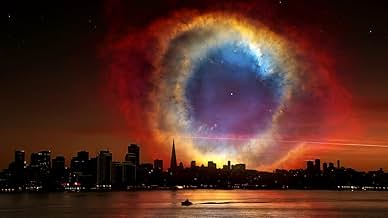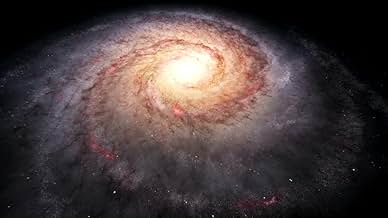Embark on an astounding journey across 100,000 light-years to witness key moments in the history of the Milky Way. Using cutting-edge science, National Geographic constructs a 3-D state-of-t... Read allEmbark on an astounding journey across 100,000 light-years to witness key moments in the history of the Milky Way. Using cutting-edge science, National Geographic constructs a 3-D state-of-the-art CGI model of our galaxy. Gaze into the heart of the Milky Way on the hunt for super... Read allEmbark on an astounding journey across 100,000 light-years to witness key moments in the history of the Milky Way. Using cutting-edge science, National Geographic constructs a 3-D state-of-the-art CGI model of our galaxy. Gaze into the heart of the Milky Way on the hunt for super-massive black holes. Witness as stars are born and die. Fly out and above the plane of ou... Read all
- Director
- Stars
Featured reviews
A "must-see" for anyone who is fascinated by our Universe and how its structure came to be. Maybe...
What happened immediately after the "big bang"? Why do Astronomers believe there HAS TO BE something called "dark matter" that is more massive than the visible universe and that provides the gravitational structure responsible for the arrangement of the billions of galaxies? Why will our Milky Way galaxy cease to exist as we know it in a mere 2.5 Billion years?
December 2017 edit: Now an Astrophysicist has proposed a theory for the Universe which does not rely on Dark Energy and Dark Matter. Maybe we will live long enough to see how that turns out!
These and many more questions are addressed and explained in a way that we laymen (non-Astrophysicists) can comprehend. They do it in a clever manner, they use the analogy of a person living in the far suburbs going downtown to a large city. For the person, they use the planet Earth. It, in our solar system, resides in a rather "rural" part of the Milky Way galaxy. But "downtown", which is packed with stars and hot in both temperature and destructive cosmic radiation, would be a very dangerous place in comparison.
We on Earth are very comfortable in our little solar system, which has changed very little for a few Billion years, enabling life to form and evolve. There is good discussion of the possibility of life-sustaining planets elsewhere, and what kinds of observations and specialty instruments are being developed to facilitate that.
I have been interested in the "night sky" since I was a small boy on an inflated truck inner tube watching for meteors. I am a scientist, but actually know relatively little about Astrophysics, and I found this film interesting from start to finish.
I give it my highest recommendation for those who are interested in the subject, our Universe and our Milky Way galaxy.
Any why will our Milky Way galaxy cease to exist as we know it? The galaxy Andromeda is moving towards our Milky Way galaxy at a great speed and they will collide in roughly 2.5 Billion years. They will not be destroyed, instead will interact in a way to form a single larger galaxy with a vastly different shape. Computer modeling shows what that interaction may look like, and they show real Hubble images of merged galaxies that look virtually identical to the computer images. Leave a note for your descendants, to watch for it in a couple of Billion years!
Best of the best , Must see. Hats off Mr. James S Bullock.
The six things that every review should include are a plot summary: Milky way heir first impression: Extra ordinary commentary on the acting: Script is delivered clearly analysis of technical elements: Phd Scholars an evaluation of the film's overall success: Yes the critic's final recommendation: 10/10.
The documentary explored the cosmos, taking viewers across our solar system, into distant galaxies, and right up to the "edge" of a black hole and how the sun ends and the future of milky way and our civilization as we believe what might happen ! But we don't real know.
Details
- Release date
- Country of origin
- Language
- Also known as
- Inside the Milky Way
- Production company
- See more company credits at IMDbPro
- Runtime1 hour 36 minutes
- Color






